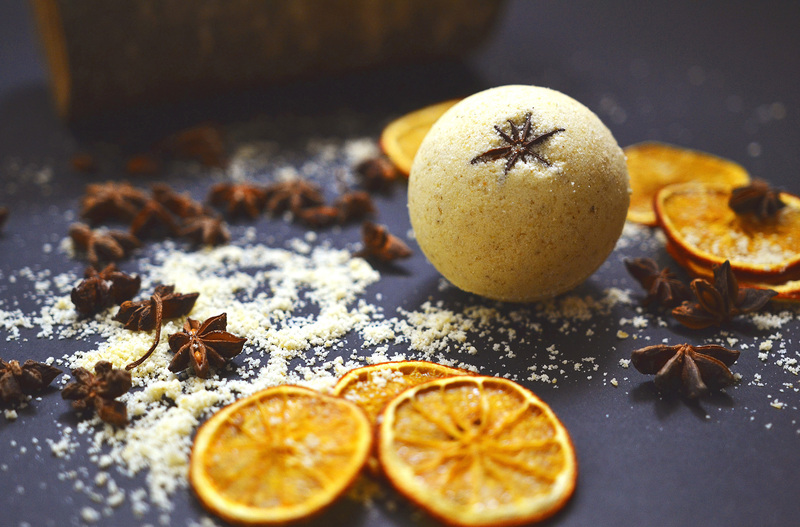How to Keep Your Home Free of Damp Odors
Posted on 16/09/2025
How to Keep Your Home Free of Damp Odors: The Ultimate Guide
Musty and damp odors in the home are not only unpleasant, but they can also signal underlying issues such as excess moisture, mold, or poor ventilation. If you're wondering how to keep your home free of damp odors, you've landed on the right guide. This comprehensive article will explore causes, solutions, and preventive measures to ensure your living space remains fresh, clean, and healthy all year round.
Understanding Damp Smells in Your Home
Before tackling damp odors, it's essential to understand where they originate:
- Mold and mildew growth
- Excess humidity and condensation
- Poor ventilation and airflow
- Water leaks in basements, attics, bathrooms, or kitchens
- Wet or damp fabrics, carpets, and soft furnishings
Many homeowners struggle with persistent musty smells because they focus on covering up odors rather than addressing the source. The secret to keeping your home odor-free is finding and resolving the root cause.

Identify the Source of Damp Odors
Spotting the Problem Areas
Start your journey to a fresh, odor-free home with a thorough inspection. Pay special attention to:
- Basements and cellars: These below-ground spaces are notorious for high humidity and water intrusion.
- Bathrooms and kitchens: Steam and leaks can quickly cause damp problems.
- Closets and storage areas: Poor ventilation and stored items can trap moisture.
- Laundry rooms: Damp clothes and washing machines are common culprits.
- Attic spaces: Roof leaks or insufficient ventilation create ideal conditions for mustiness.
Use your nose and eyes. If you notice stains, discoloration, bubbling paint, or peeling wallpaper, these can indicate moisture issues behind the surfaces.
Proven Ways to Eliminate Damp Odors at Home
1. Improve Ventilation and Air Circulation
The most effective step in removing damp odors is to let your home breathe:
- Open windows and doors regularly to let in fresh air, especially after showers and cooking.
- Use exhaust fans in humid areas like bathrooms and kitchens.
- Install trickle vents or air bricks if your home's design allows.
- Position furniture away from walls to allow airflow.
- Regularly clean vents and ducts to ensure unimpeded air movement.
2. Control Moisture and Humidity Levels
Excess moisture is the primary reason for recurring damp odors in homes. Here's how to manage it:
- Use dehumidifiers in damp-prone rooms and empty the reservoir often.
- Monitor indoor humidity with a hygrometer; aim to keep levels between 40-60%.
- Promptly repair leaks in plumbing, roofs, and walls.
- Ensure gutters and downspouts direct water away from your foundation.
3. Address Water Intrusion and Condensation
Condensation and leaks create ideal conditions for mold and dampness:
- Insulate cold surfaces like windows and pipes.
- Add weather stripping to doors and windows.
- Wipe down condensation on windowsills and tiles promptly.
- Check under sinks and appliances for hidden leaks regularly.
4. Deep Clean and Dry All Surfaces
Stale odors cling to dusty, dirty, and damp surfaces:
- Wash and thoroughly dry curtains, upholstery, rugs, and carpets.
- Wipe down walls, baseboards, and shelves with an antimicrobial cleaner.
- Steam clean carpets, if needed, to remove embedded odors and bacteria.
- Regularly ventilate and clean closets and storage spaces.
5. Tackle Mold and Mildew Growth
Mold and mildew not only smell musty but can also affect your health. To keep your living areas free from spores:
- Scrub moldy areas with a solution of vinegar, baking soda, or a commercial mold remover.
- Replace water-damaged drywall, ceiling tiles, or insulation if the mold has penetrated deeply.
- Avoid using bleach on porous surfaces; it doesn't kill mold roots.
- Seek professional remediation for large or persistent problems.
6. Use Odor Absorbents and Natural Remedies
While you resolve the source of the problem, there are ways to neutralize musty home odors:
- Baking soda: Place open bowls of baking soda in closets or under furniture to absorb smells.
- Activated charcoal is highly effective in trapping airborne impurities.
- Coffee grounds are a natural, pleasant-smelling odor absorber.
- Essential oils like tea tree, eucalyptus, or lavender can refresh the air when used in a diffuser.
- Fresh lemons or citrus peels in bowls can provide a clean, revitalizing scent.
Preventing Damp Odors in the Future
Simple Habits for a Fresh-Smelling Home
Consistent maintenance is the key to keeping your home free from damp odors.
- Hang wet towels and clothes to dry immediately after use.
- Empty and clean washing machines, dryers, and dishwashers regularly.
- Use reusable moisture absorbers in wardrobes, cupboards, and drawers.
- Vacuum and mop floors routinely to avoid buildup of damp dust and debris.
- Promptly air out rooms after baths, showers, or heavy rainfall.
Home Improvements to Consider
- Upgrade windows and insulation to reduce condensation.
- Invest in a whole-house dehumidification system if you live in a damp climate.
- Consider waterproofing your basement or crawl space.
- Install a ventilation system with heat recovery for consistent airflow.
- Repair any foundation cracks or roof leaks as soon as possible.
Bonus Tips for a Naturally Fresh Home
Beyond Damp Odor Prevention
Enhance your home environment and reduce indoor air pollution with these additional strategies:
- Introduce houseplants like peace lilies, pothos, or spider plants. They help purify air and absorb excess moisture.
- Add a bowl of white vinegar in rooms overnight for quick odor elimination.
- Keep pet bedding and litter boxes clean and dry to avoid lingering smells.
- Use natural air fresheners instead of chemical sprays, which can mask but not eliminate odors.
When to Call the Professionals
Stubborn damp odors or extensive mold growth often require expert help. Contact professionals if:
- The odor persists after thorough cleaning and drying.
- You suspect mold inside walls, under floors, or above ceilings.
- Your home has experienced recent flooding or extensive water damage.
- Family members develop respiratory symptoms, allergies, or health issues that could be linked to indoor air quality.
Professional remediation may involve moisture mapping, specialized drying, mold removal, or waterproofing solutions.

Frequently Asked Questions About Damp Odors at Home
What causes persistent musty smells in my house?
Common causes include hidden mold, high humidity, insufficient ventilation, water leaks, and damp materials. Identifying and eliminating moisture at the source is crucial for lasting results.
Are damp odors dangerous to health?
While the smell itself is unpleasant, it often indicates mold, bacteria, or pollutants that can harm your health, especially for those with allergies, asthma, or weakened immune systems.
Can I use air fresheners to get rid of damp smells?
Air fresheners can temporarily mask the odor, but won't solve the underlying problem. Always address the source by drying out the affected area, improving ventilation, and cleaning any mold or mildew present.
How do I prevent damp odors in my basement?
Use a basement dehumidifier, seal cracks and leaks, ensure good ventilation, and avoid storing damp items. Regularly inspect your basement after heavy rain for new signs of dampness.
Conclusion: Enjoy a Fresh, Odor-Free Home
Learning how to keep your home free of damp odors ensures a more comfortable, healthy, and pleasant living environment. Remember to address moisture sources promptly, maintain consistent ventilation, and use natural or commercial odor removers when necessary. With diligent preventive measures and these practical strategies, your home will stay free from musty, unpleasant smells - making it a sanctuary of comfort and freshness you'll love to come back to every day.
Take action today and say goodbye to damp odors for good!



